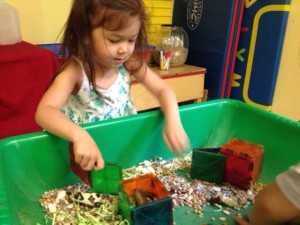PAL Policies
 PAL is committed to the co-op model. That means that the teachers, children, and parents work together to create and support the education environment that works best for the community. Here are some reminders about the policies of our school community:
PAL is committed to the co-op model. That means that the teachers, children, and parents work together to create and support the education environment that works best for the community. Here are some reminders about the policies of our school community:
Family Helper
Note: helpers are now required to assist ONLY if one of our two classroom teachers is absent. Though this is rare, it is still important to be aware of your scheduled helper days and verify at drop-off whether you are needed as helper.
As a family-run cooperative, we rely on the efforts of our PAL families and caregivers to keep PAL running smoothly. The presence of a parent or caregiver acting as the teacher’s assistant improves the child-to-adult ratio which makes PAL successful. The more committed the assistant is to the role, the better the experience for all of our children. Please review the following responsibilities designated to the Teacher’s Assistant.
1. During free play, assist groups of children who are in play. Often children will split into small groups located at different stations during free play time, and the teacher can only be with one group at a time. The Teacher’s Assistant should engage with another group, supervising them to be sure that they remain safe and play appropriately, as well as providing encouragement and instruction in their chosen activity.
2. During circle time or other group activities, help keep children engaged in the group activity. Encourage children who may be distracted to pay attention to the teacher and activity.
3. Take the lead with cleanup. The Teacher’s Assistant should clear off the table after free play, snack, and craft activities; sweep/vacuum as needed.
4. Help the teacher during the water break to give each child a drink.
5. Assist children in going to the bathroom (key available in the classroom) or help change diapers, as necessary.
If you cannot assist on your assigned day, you must call another parent in your session and trade days in advance. It is essential that a parent or caregiver assistant be present every day.
Discipline & Classroom Management
For young children, it is imperative that consequences for behavior be clear and consistent. In our classroom, we aim to prevent problematic behavior before it becomes an issue. We believe in using redirection and offering limited choices to help children take responsibility for their actions. Children are encouraged to “use their words” and communicate their feelings; this not only helps children feel more secure and in touch with their emotions, but also helps them learn how to resolve conflicts.
While we all recognize that young children are still learning to control their impulses, violence in the classroom is never tolerated. Hitting, biting, scratching, and the like will result in the child being taken aside to sit and have a break with the family helper for a few minutes.
Health Precautions
Please follow these health guidelines closely. They are designed to minimize the spread of infections at PAL.
Please keep your child at home if ANY of the following applies:
1. Your child is in the first stages of a cold – characterized by copious mucus, heavy or wet cough, or sneezing.
2. Your child has a fever (100.4°F or higher). Please remember, your child must have had a normal temperature FOR 24 HOURS before returning to PAL.
3. Your child has had diarrhea or vomiting in the last 24 hours.
4. Your child has one or both eyes that are red with or without mucus or crust.
5. Your child has nits (lice) in their hair.
Snacks
To allow for more time for teaching, PAL no longer will include snack time during class. Instead, we will have a short water break.
Birthdays
If you would like to do so, your child’s birthday may be celebrated with a special snack during class. Please arrange this on the calendar with the teacher and other parents in your child’s session. You may bring cupcakes, or the like, and special napkins if you want. Please do not bring party favors or goody bags. Any birthday treats must be nut-free.
We have a birthday tradition at PAL, which is the donation of a children’s book in honor of your child’s birthday. The teacher or parent may read the birthday book during snack time on the day of the birthday celebration. Your child’s name and birthday will be recorded in the book for posterity.
Entrance and Dismissal Procedures
Children who arrive early to the session should wait in the lobby with their parent/caregiver.
For safety reasons as well as giving the teacher an opportunity to prepare for class, no students will be allowed in the classroom before the scheduled start of their session. The teacher will open the door to indicate that the classroom is open.
Toward the end of the session, parents/caregivers should congregate near the classroom door; when class ends, the teacher will open the door to allow all parents/caregivers inside to pick up their child. Please take your escorted child to the lobby to put on jackets, etc. so that the teacher may get ready for the next session. No unescorted child will be allowed to leave the room. Children should not run out of the room to meet their parent/caregiver.
Class Cancellation and Reimbursement Policy
Make-up Classes: No make-up (or reimbursement) classes will be provided for classes missed by the primary teacher for any reason unless the primary instructor has canceled more than 25% of the total number of sessions for the class. If the primary instructor is not available for a scheduled session, the PAA will make every reasonable effort to arrange for a substitute instructor.
Refunds / Credits: Tuition represents the cost of participation for the entire semester. The PAA will not refund tuition after the start of the session under any circumstances.
Notification of Class Cancellation: Instructors will notify parents as far in advance as possible if a class is cancelled. However, in case of last minute cancellations (e.g. if NYC schools are not closed but the instructor isn’t able to come class, sick day, etc.), instructors will have a contact list including emails/phone numbers for the students in his /her class. The communication will be as follows:
Email – Preferred method
Phone, using the number provided on the Emergency Contact form – Alternative method if email is not available.
Instructors will also notify the Payson House doorman so that he can inform families when they arrive for class.
